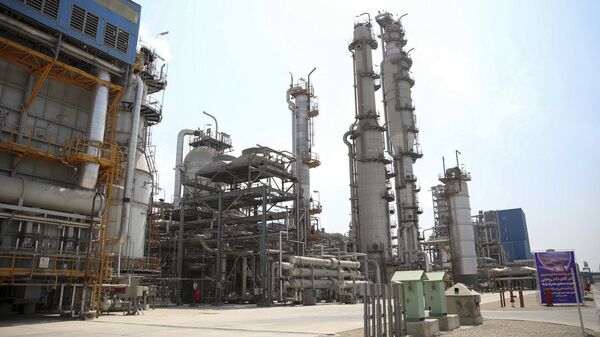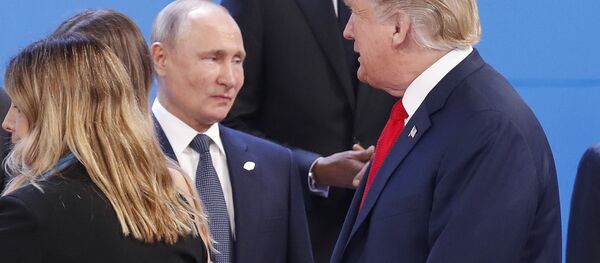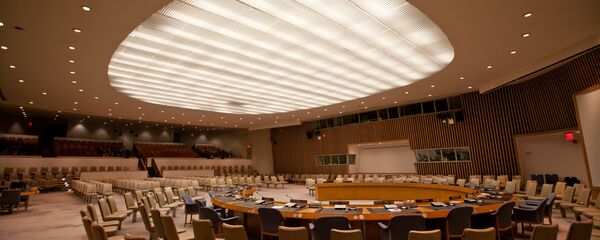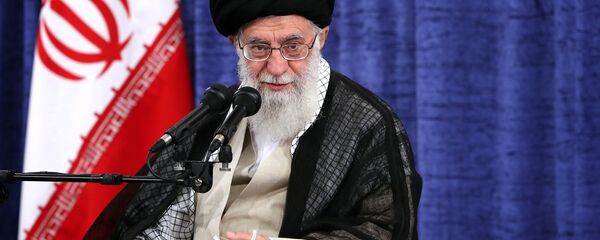On Saturday, the Washington Post reported, citing undisclosed sources, that US President Donald Trump had authorized a cyberattack against Iranian military command and control systems used to launch the missile that downed a US drone, which Tehran claims violated Iranian airspace. The reported cyberattack comes after Trump announced Friday that he canceled a military attack against Iran 10 minutes before launch after learning it would result in 150 Iranian civilian casualties.
“I believe that this cyberattack was not successful in terms of being able to disable the military command and control computer systems within Iran. I think that the greater failure is that, rather than pursuing diplomacy and negotiations and trying to restore the Joint Comprehensive Plan of Action (JCPOA) and end these draconian economic sanctions, the US is putting effort into more and more plans for attacks, for threats, for force. And it’s certainly going to contribute to the proliferation [of] these kinds of attacks,” Kelly told hosts John Kiriakou and Brian Becker.
In May 2018, the United States pulled out of the 2015 JCPOA and reimposed sanctions against Iran that had been lifted under the terms of the deal, as well as enacted new ones.
Kelly pointed out that the 150 potential deaths from the airstrike were nothing compared to the “thousands of people who might die because of the economic sanctions.”
“You can not get, without [a] very complicated procedure, importation of food … medicine from foreign countries,” Kelly said, meaning Iranians who depend on imported medicine to treat conditions like diabetes or immune system disorders often don’t have access to medications they need. “There are people who will die.”
“If Iranians could sell all of their oil and keep their economy afloat and not be dealing with at least a 60% decline in the rial, they wouldn’t be trying to figure out how to shut down the Strait of Hormuz. There wouldn’t be a need to wage these reckless cyberattacks,” Kelly continued, referring to a primary shipping route between the Persian Gulf and the Gulf of Oman.
The US and Iran have a long history of cyberwarfare. Iran was hit by the Stuxnet virus in 2010, which substantially damaged its uranium enrichment centrifuges. Although neither country has admitted it, the virus is widely believed to be a US and Israeli cyberweapon. Cyber experts claim that Iranian cyberattacks against the US decreased after then-US President Barack Obama signed the JCPOA.
“This economic war [on Iran] has been going on, and now of course people are cringing in the face of possible military attacks. We should also ask the question: who is an aggressor to whom? Iran is surrounded by 45 US military bases; Iran shares that border with Afghanistan. And why does the US still have no less than nine major rent-free bases in Afghanistan? Well, four of them are on the shared border between Iran and Afghanistan,” Kelly explained.
“Certainly the country is surrounded [by US bases], and when you look at Iran's military might, one way of looking at it is to say that their $15 billion defense budget would be consumed in seven days of Pentagon spending, with our $790 billion dollar budget.”
“If you’re living in Iran, and you’re under draconian economic sanctions, and there’s continual effort to frame your government ... as a dangerous government in the region, then I don't think anything can begin to feel like a lull,” Kelly responded, when asked if tensions between Iran and the US have dissipated since last week.
“It is approaching election season. I think that adds to the danger. If President Trump believes that he can secure another four years in office by being a president at war, I think this becomes very, very dangerous. It’s certainly important now for every peace group across the US to be organizing vigils, street presence, making sure people are contacting their elected representatives. I think it’s a crucial time for US people to say we are tired of war after war in the Middle East.”
“This has debilitated our economy. We can’t grapple with the real problems we do face, and we have become a menace in a region where we have no right whatsoever to be interfering,” Kelly added.







